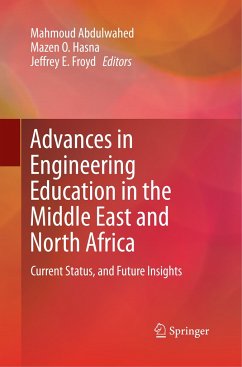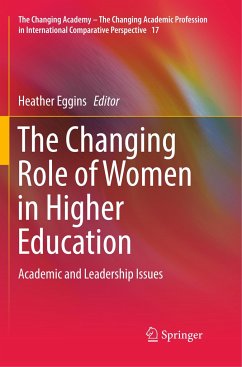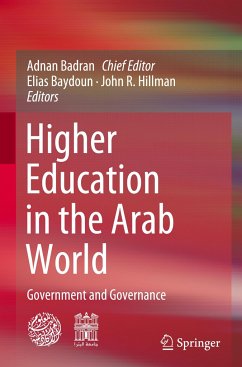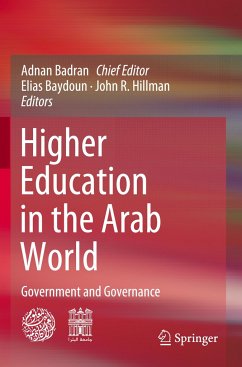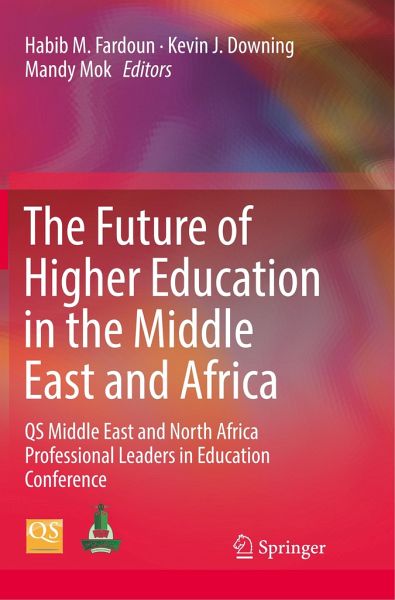
The Future of Higher Education in the Middle East and Africa
QS Middle East and North Africa Professional Leaders in Education Conference
Herausgegeben: Fardoun, Habib M.; Downing, Kevin J.; Mok, Mandy
Versandkostenfrei!
Versandfertig in 6-10 Tagen
68,99 €
inkl. MwSt.

PAYBACK Punkte
34 °P sammeln!
This book addresses some of the challenges posed by the globalization of higher education. It examines the emergence and resulting challenges of English as Lingua Franca (ELF) and of the decision to use English as the Medium of Instruction (EMI) as part of a strategic policy of internationalization. It looks at survival challenges caused by globalization and expansion, the diversity challenge, the concept of marginality and how marginality can lead to creativity, teaching and encouraging entrepreneurialism, the tools needed for internationalizing higher education in developing countries, innov...
This book addresses some of the challenges posed by the globalization of higher education. It examines the emergence and resulting challenges of English as Lingua Franca (ELF) and of the decision to use English as the Medium of Instruction (EMI) as part of a strategic policy of internationalization. It looks at survival challenges caused by globalization and expansion, the diversity challenge, the concept of marginality and how marginality can lead to creativity, teaching and encouraging entrepreneurialism, the tools needed for internationalizing higher education in developing countries, innovative approaches, the intelligent use of technology, and finally, the value of non-constraint engagement in driving teaching and course quality improvements.
The expansion of higher education and the increasingly international body of students and staff continue to inspire and drive the development of global higher education systems. Whilst these systems began locally, many are now engaging with the challenges of retaining their local flavour whilst embracing the march of globalisation. The challenge is to find local solutions that also meet the requirements of the rapid development of what might be termed the 'massification' of international higher education. This book reflects these contemporary challenges through its variety of topics taken from countries as diverse as Hong Kong, Panama, South Africa, USA and Saudi Arabia. The topics are as diverse as some of the local solutions but each chapter represents a response to a rapidly changing global landscape.
The expansion of higher education and the increasingly international body of students and staff continue to inspire and drive the development of global higher education systems. Whilst these systems began locally, many are now engaging with the challenges of retaining their local flavour whilst embracing the march of globalisation. The challenge is to find local solutions that also meet the requirements of the rapid development of what might be termed the 'massification' of international higher education. This book reflects these contemporary challenges through its variety of topics taken from countries as diverse as Hong Kong, Panama, South Africa, USA and Saudi Arabia. The topics are as diverse as some of the local solutions but each chapter represents a response to a rapidly changing global landscape.



